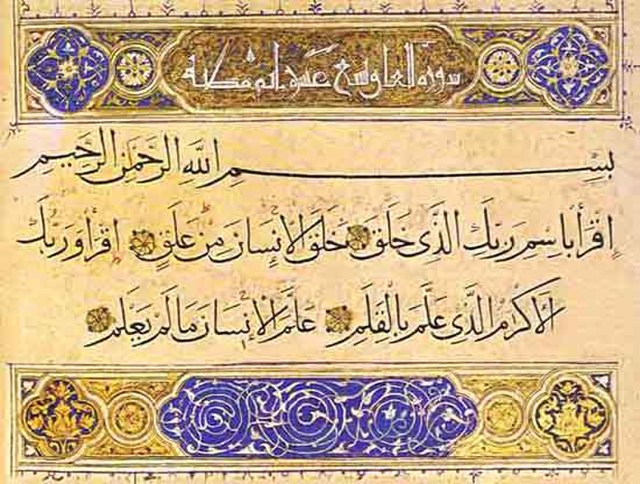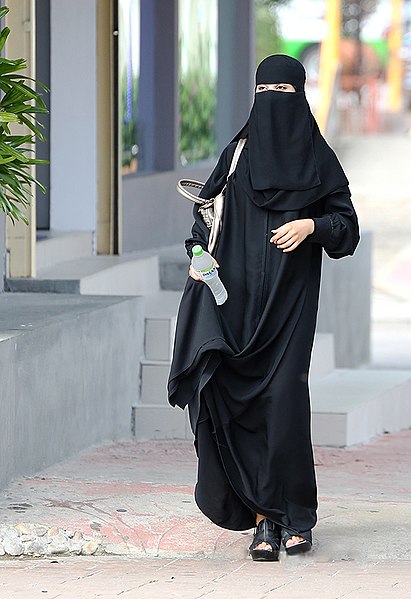Women's rights in Saudi Arabia
Women's rights in Saudi Arabia is a topic of concern and controversy internationally. Women in Saudi Arabia experience widespread discrimination in Saudi politics, economy and society.
Saudi ambassador to the U.S. Princess Reema bint Bandar Al Saud
A Saudi woman riding a horse in Souk Okaz, a yearly cultural festival in the outskirts of Taif
A woman wearing a niqāb in Riyadh
Iffat bint Mohammad Al Thunayan was an activist and pioneer for women's education in Saudi Arabia.
Legal system of Saudi Arabia
The legal system of Saudi Arabia is based on Sharia, Islamic law derived from the Quran and the Sunnah of the Islamic prophet Muhammad. The sources of Sharia also include Islamic scholarly consensus developed after Muhammad's death. Its interpretation by judges in Saudi Arabia is influenced by the medieval texts of the literalist Hanbali school of Fiqh. Uniquely in the Muslim world, Sharia has been adopted by Saudi Arabia in an uncodified form. This, and the lack of judicial precedent, has resulted in considerable uncertainty in the scope and content of the country's laws. The government therefore announced its intention to codify Sharia in 2010, and, in 2018, a sourcebook of legal principles and precedents was published by the Saudi government. Sharia has also been supplemented by regulations issued by royal decree covering modern issues such as intellectual property and corporate law. Nevertheless, Sharia remains the primary source of law, especially in areas such as criminal, family, commercial and contract law, and the Qur'an and the Sunnah are declared to be the country's constitution. In the areas of land and energy law the extensive proprietorial rights of the Saudi state constitute a significant feature.

Verses from the Quran, a primary source of the law of Saudi Arabia.
Walid bin Mohammed Al Samani, current Justice Minister since 2015
King Abdullah ordered a number of reforms of the judiciary during his reign
A police vehicle in Saudi Arabia








